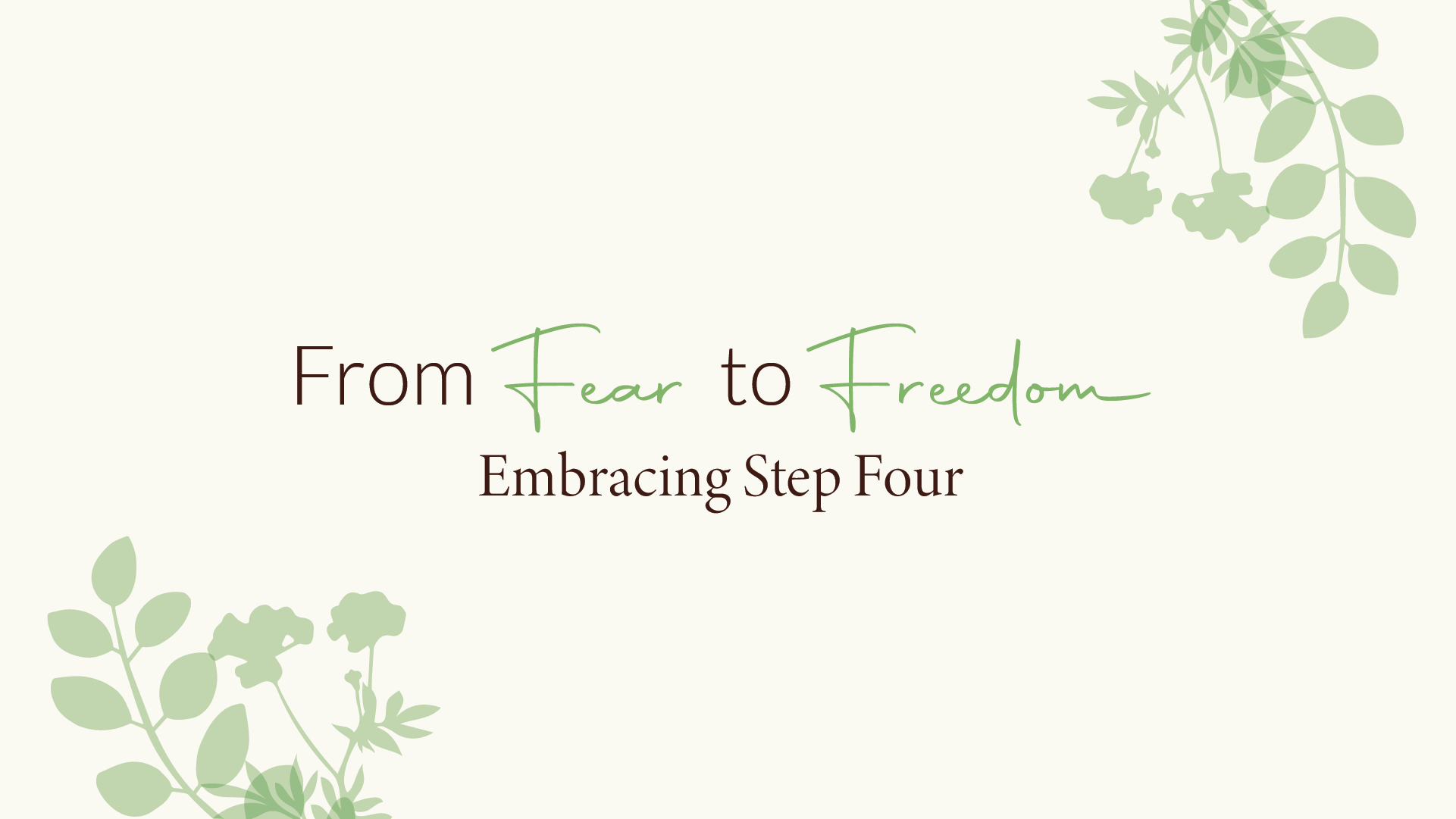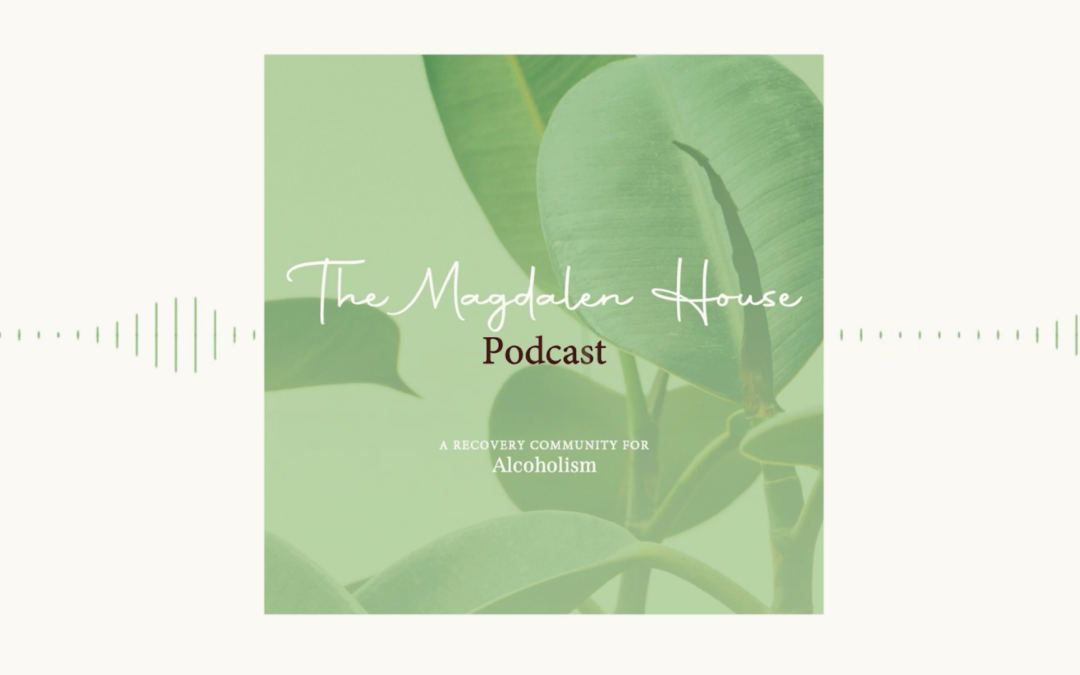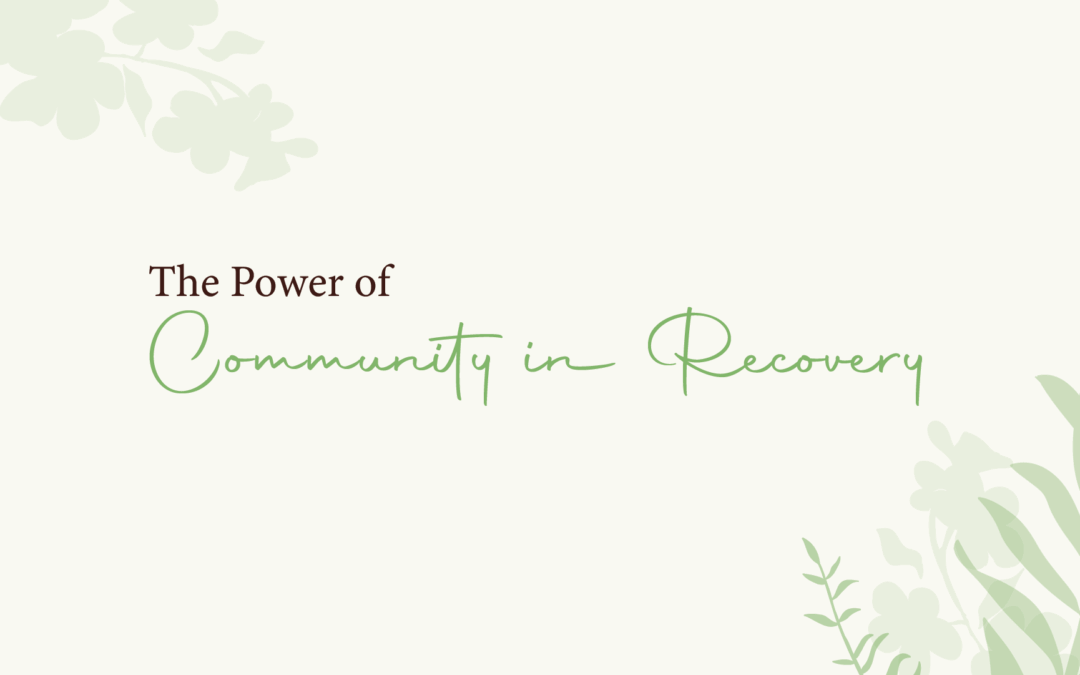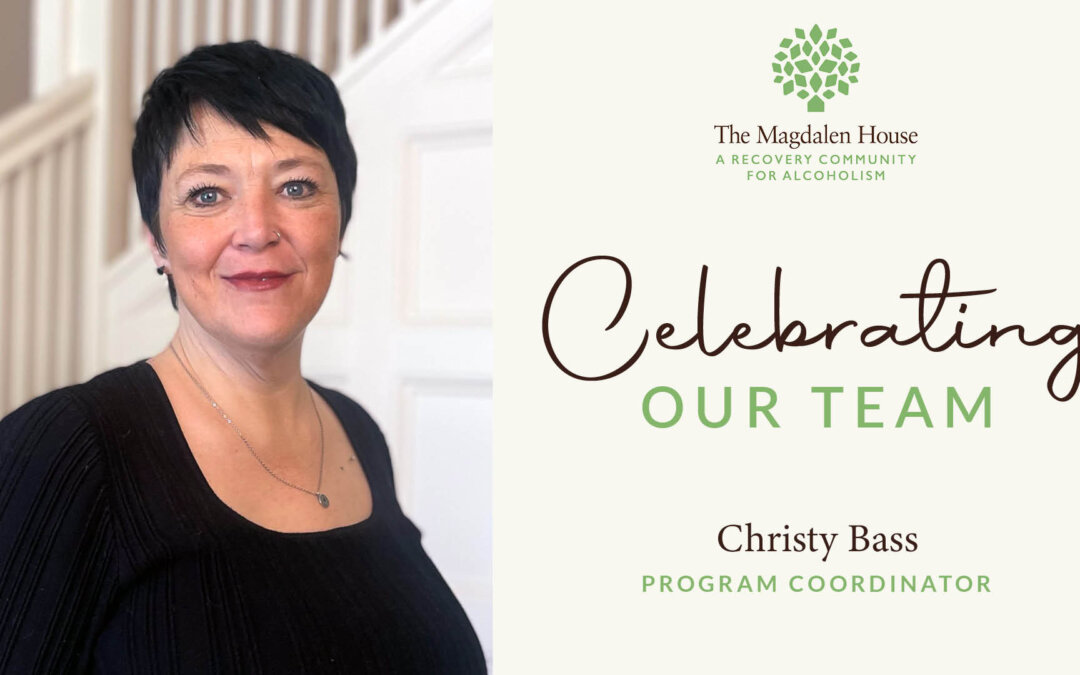From Fear to Freedom Embracing Step Four
By Brooke Shults, Program Coordinator
Big, bad Step 4. So many people dread it. How do I even begin Step 4? The hardest part is having the courage to start.
If we know deep down in the depths of our soul that Step 1 is our truth, Step 4 is welcomed. This step is an opportunity to clear out all the things that are blocking us from our real solution. We have a spiritual sickness, and there is a spiritual solution.
It is not a coincidence that courage is also the spiritual principle associated with Step 4. In Step 3, we decide to turn our will and our lives over to the care of God and make a decision to go through with the rest of the steps. Now it’s time to take action. We are to launch out swiftly, not slowly.
Like writing an essay, we begin by creating an outline to organize our thoughts and then use bullet points to further structure our ideas. Once you have the outline, you can elaborate on it and put it into an essay. Step 4 is the outline, just the bare-bones facts, and then in Step 5, we discuss it all with someone else, preferably our sponsor.
Step 4 is a fact-finding mission, rather than an emotional approach. Once we have a recovery-driven attitude adjustment, our perception of Step 4 shifts. So, I’m taking action, regardless of how I feel, because feelings aren’t facts.
First, I ask the God of my understanding to lead and guide me. I get some paper and a pen. I’ve discussed it with my sponsor, and I’ll start on my first column, not the row. If I focus on each column in Step 4, I can compartmentalize it and stick to the facts. This way, I don’t get caught up in the emotions. Who are the people, institutions, and principles that have gotten under my skin? It doesn’t matter if Dusty from 2nd grade comes to mind; I’m writing it down. After all, resentments are the number one offender.
Somehow, I expected that when I drank poison, the other person would die. So, I have to be honest with myself: why am I angry? This is column 2. What was affected? We can narrow it all down to self-esteem, money, personal ambitions, or personal relationships, including sex. Whether these things hurt us or just threatened us is irrelevant. Our resentments can be real or imaginary, and they hurt us the same way. The book only shows three columns, but the fourth was the most important to me.
In the past, I often stewed over what others had done, but I never considered how I might have been the catalyst for their actions. My goal is to be happy, joyous, and free. I can’t do that if people are living in my head rent-free.
Now, it is time to shift my perspective: What did I do wrong? I don’t like the phrase ‘my part’ because that implies there is another part. If it is two parts, they surely did more to me than I did to them. Therefore, I am still the victim, and victims don’t recover. I know in my heart I had something to do with the resentment, even if it’s how I carried the pain and took it out on others, or maybe just stayed in a toxic relationship. This column prompts self-reflection and accountability.
The Big Book of Alcoholics Anonymous suggests reviewing page 67 for guidelines on this aspect of Step 4. I can’t change myself; I need God’s help, so I certainly can’t change others. I must find the fault in me. I was always so good at explaining things away in the past. So, as far as I’d ever gotten, the world wronged me.
As I have grown in acceptance, I have come to realize that the world will spin with me on it or not. I must learn how to accept my mistakes so I can be free of resentment. Somehow, I must have empathy for those who have wronged me and see that they are spiritually sick, just like me. While I don’t like what they did, I also dislike how it’s affecting my life. I get it all down on paper instead of the tangled mess that is in my head.
After all, I have a Brooke problem, not a drinking problem. 90% of the population drinks, and they are just fine. But if you are a real deal, a chronic alcoholic like me, you are like a linebacker blocking your own recovery. If someone had cancer, you would cheerfully show them love. When people offend us, we can say,
“This person is sick. How can I be helpful? God save me from being angry. Thy will be done.” page 67
They, just like us, are sick, not bad people. I find it helpful to say the sick man’s prayer before I start my fourth column. The fourth column looks for where I’d been selfish, dishonest, self-seeking, and frightened. Each inventory has the same format.
Our next inventory is fear. Fear steals time while it is in my head, causing all kinds of trouble. I must ask myself why I have these fears. If I’m honest, I’ll probably be resentful of myself because self-reliance failed me. However, I can shift from self-reliance to God reliance, and the fear will be removed. As we established in Step 1, I can’t do it myself. I ask God to remove my fears and direct my thinking to what He would have me be.
The final inventory should really be called relationships, but it is commonly referred to as the sex inventory. It is absolutely not a hit list of our sexual conquests. It is a review of how we have acted in our relationships. We ask ourselves where we have been selfish, dishonest, or inconsiderate. Who did we hurt in column 1 again? Did we unjustifiably arouse jealousy, suspicion, or bitterness?
After we have all this written down on paper, we review it. Of course, we all have relationship and sex problems. We wouldn’t be human if we didn’t, but just like resentments and fears, we can no longer let these things dominate us. We make the columns just like we did with resentments and fears. We never look at the rows until we do our 5th step with our sponsors.
No one is trying to control anyone’s sex life, but isn’t it time we looked at what our ideal future sex, sane and sound, sex life should be? We asked ourselves if each relationship was selfish or not. We asked God to mold our ideals and help us to live up to them. Anywhere the book says “ask” is a prayer. So now, here comes the trick: whatever we come up with, we must become that ourselves.
I have now completed a resentment, fear, and sex inventory, as well as a sane and sound inventory. The truth will set us free; therefore, it always goes back to the essentials of recovery: Honesty, Open-mindedness, and Willingness.
Alcoholics Anonymous: The story of how many thousands of men and women have recovered from alcoholism. (4th ed.). (2001). Alcoholics Anonymous World Services.






